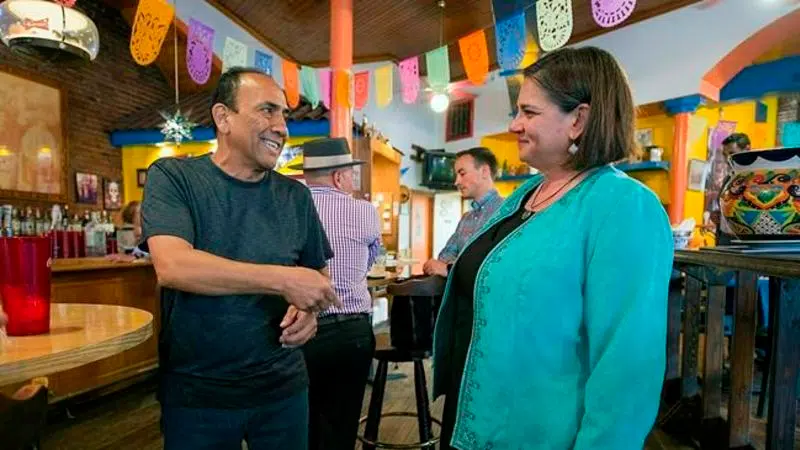
Kansas City, Missouri, voters elect Lucas as new mayor
KANSAS CITY, Mo. — A 34-year-old black man whose family was occasionally homeless during his childhood in Kansas City, Missouri, will become the city’s 55th mayor.
Voters on Tuesday chose Quinton Lucas over fellow City Council member Jolie Justus in a mayoral runoff, according to unofficial results. He will assume office in August, replacing Sly James, another black mayor who served two four-year terms.
Justus, a former state lawmaker and current City Council member, had James’ endorsement and would have been the city’s first openly gay mayor.
Both Lucas and Justus are attorneys with similar voting records during their first terms on the City Council. During the campaign, both said their top priorities were reducing crime, increasing affordable housing and spreading development projects across the city. Although the election was officially nonpartisan, both candidates are Democrats.


